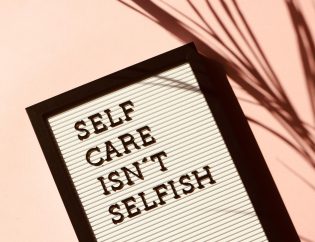
Mental health is vital to our overall well-being, affecting how we think, feel, and act daily. It influences how we handle stress, relate to others, and make choices. Good mental health is essential for personal fulfillment, productive work, and meaningful relationships. Neglecting mental health can lead to a variety of problems, including anxiety, depression, and other mental illnesses that can severely impact one’s quality of life. Prioritizing mental health through self-care, support systems, and professional help when needed is crucial for maintaining a balanced and healthy life.
Psychotherapy, also known as talk therapy, is a method used to treat mental health issues by talking with a psychiatrist, psychologist, or other mental health providers. It involves various techniques to help a person identify and change troubling emotions, thoughts, and behaviors.
Psychotherapy is important because it provides a safe space for individuals to explore their feelings, understand their problems, and develop coping strategies. It is used to treat a wide range of issues, from depression and anxiety to trauma and relationship problems, offering a path to recovery and improved mental health.
Keep reading our blog to learn more about types of psychotherapy and psychotherapy techniques.
Types of Psychotherapy
There are several different types of psychotherapy, including individual therapy, couples therapy, family therapy, and group therapy. Let’s dive into each one.
Individual Therapy
Individual therapy, also known as one-on-one therapy, is a type of psychotherapy in which a trained mental health professional works directly with a single person to address and resolve their emotional and psychological issues. This form of therapy provides a confidential and supportive environment where individuals can explore their thoughts, feelings, and behaviors. The therapist helps identify patterns, develop coping strategies, and set personal goals for improvement. Individual therapy is effective for treating a variety of mental health conditions, such as anxiety, depression, and trauma, and is tailored to meet the unique needs and circumstances of each person.
Couples Therapy
Couples therapy is a type of psychotherapy designed to help partners in a romantic relationship improve communication, resolve conflicts, and strengthen their connection. In this form of therapy, a trained therapist works with both individuals to explore the dynamics of their relationship, identify problematic patterns, and develop healthier ways of interacting. The therapist provides a neutral and supportive space for both partners to express their feelings, understand each other's perspectives, and work collaboratively toward their relationship goals. Couples therapy can address a wide range of issues, including communication problems, infidelity, intimacy concerns, and significant life changes, ultimately fostering a more harmonious and fulfilling relationship.
Family Therapy
Family therapy is a type of psychotherapy that involves working with families to improve communication, resolve conflicts, and strengthen relationships. A trained therapist collaborates with family members to address specific issues that affect the health and functioning of the family unit. This form of therapy provides a safe and supportive environment where family members can develop effective problem-solving strategies. Family therapy can help address a variety of issues, such as parenting challenges, sibling conflicts, substance abuse, and mental health concerns, promoting healthier dynamics and enhancing the overall well-being of the family.
Group Therapy
Group therapy is a form of psychotherapy where a small group of individuals, typically led by one or more trained therapists, come together to discuss and work through their shared experiences and challenges. This setting provides a supportive environment where participants can share their thoughts and feelings, gain insights from others' perspectives, and receive feedback and encouragement from the therapist and group members. Group therapy can address a wide range of issues, including anxiety, depression, addiction, and interpersonal difficulties. It fosters a sense of community and belonging, helping individuals realize they are not alone in their struggles and empowering them with collective wisdom and support to achieve personal growth and healing.
Psychotherapy Techniques
Psychotherapy encompasses various techniques for mental health treatment, including cognitive-behavioral therapy (CBT), which focuses on changing negative thought patterns; psychodynamic therapy, which explores unconscious processes and past experiences; humanistic therapy, which emphasizes personal growth and self-fulfillment; and dialectical behavior therapy (DBT), which combines CBT techniques with mindfulness principles.
Each technique offers a unique method to address emotional and psychological issues, helping individuals manage emotions, reduce self-destructive behaviors, and improve relationships. Let’s explore each one in detail.
Cognitive Behavioral Therapy
CBT is a widely used psychotherapy technique that focuses on identifying and changing negative thought patterns and behaviors that contribute to emotional distress and psychological issues. This therapy is based on the concept that our thoughts, feelings, and behaviors are interconnected, and by altering unhelpful thinking and behaviors, we can improve our emotional well-being.
Pioneered by Dr. Aaron T. Beck, CBT is goal-oriented and involves working collaboratively with a therapist to develop practical skills and strategies for managing stress, anxiety, depression, and other mental health conditions. It is typically structured and time-limited, making it an effective and efficient approach to achieving lasting change and improving overall mental health.
Psychodynamic Therapy
Psychodynamic therapy is a psychotherapy technique that delves into the unconscious processes and past experiences, particularly childhood events, to uncover underlying conflicts and unresolved issues that influence current behavior and emotions. This approach, founded by Dr. Sigmund Freud, is based on the theories of psychoanalysis. It aims to help individuals gain insight into their internal world, revealing how unconscious motives and hidden emotions shape their thoughts and actions.
By exploring these deep-seated aspects of the psyche, psychodynamic therapy facilitates a greater understanding of oneself, promoting emotional healing and personal growth. The therapeutic process involves building a strong, trusting relationship with the therapist, enabling the patient to explore and interpret their feelings, fantasies, and dreams, leading to profound and lasting changes in mental health and well-being.
Humanistic Therapy
Humanistic therapy was founded by Dr. Carl. R. Rogers and is a holistic technique of psychotherapy that emphasizes personal growth, self-actualization, and the individual's inherent potential for self-healing and fulfillment. This approach focuses on the present moment and each person's unique experiences, promoting self-awareness and self-acceptance. Therapists practicing humanistic therapy create a non-judgmental and empathetic environment, encouraging clients to openly explore their feelings, thoughts, and behaviors.
Techniques such as client-centered therapy, Gestalt therapy, and existential therapy often help individuals uncover their true selves, improve self-esteem, and find meaning and purpose in life. By fostering a deeper understanding of oneself and one's place in the world, humanistic therapy aims to empower individuals to live more authentic, fulfilling lives.
Dialectical Behavior Therapy
DBT is a comprehensive psychotherapy technique designed to help individuals regulate intense emotions, improve interpersonal relationships, and reduce self-destructive behaviors. Developed by Dr. Marsha Linehan, DBT combines cognitive-behavioral techniques with principles of mindfulness, emphasizing the balance between acceptance and change. It is particularly effective for individuals with borderline personality disorder, suicidal behavior, and other conditions involving emotional dysregulation.
DBT typically involves individual therapy, group skills training, and phone coaching. Clients learn and practice skills in four key areas: mindfulness, distress tolerance, emotion regulation, and interpersonal effectiveness. DBT aims to enhance overall mental health and quality of life by fostering greater emotional stability and coping skills.
Other Psychotherapy Techniques
Beyond traditional psychotherapy techniques, various innovative techniques like animal-assisted therapy and creative arts therapy offer unique paths to mental health healing.
To improve emotional and psychological well-being, animal-assisted therapy involves interacting with animals, such as dogs, horses, or cats. The presence of animals can reduce anxiety, enhance mood, and foster a sense of connection and trust.
Creative arts therapy, which includes art, music, dance, and drama therapy, leverages the expressive power of the arts to help individuals explore their feelings, reduce stress, and enhance self-awareness.
These therapies provide alternative ways to process emotions and experiences, particularly for those who may find verbal expression challenging. Incorporating elements of creativity and companionship can be powerful tools for personal growth and emotional healing.
If you are struggling with your mental health, know that you are not alone. Many people face similar struggles, and reaching out for support is a courageous and important step. Help is available, and compassionate professionals are ready to assist you in finding the care you need.
Therapy, support groups, or trusted friends and family can help you find understanding and guidance. Your feelings are valid, and seeking help is a sign of strength, not weakness. Remember, asking for help is okay; taking that step can lead to healing, hope, and a brighter future.
Minority Mental Health Awareness Month
July is National Minority Mental Health Awareness Month. This annual observance raises awareness about the unique challenges that affect the mental health of racial and ethnic minorities and American Indian/Alaska Native populations.
This year's theme is “Be the Source for Better Health: Improving Health Outcomes Through Our Cultures, Communities, and Connections.” This theme calls on each of us to better understand how the unique environments, cultures, histories, and circumstances of racial and ethnic minorities and American Indian/Alaska Native populations impact their mental health.
Did you know that fewer than one in every two African American adults got care for mental health? In 2018, Asian Americans were 60 percent less likely to receive mental health treatment than non-Hispanic Whites.

American Indians/Alaskan Natives report higher rates of posttraumatic stress disorder and alcohol dependence than any other ethnic and racial group.
Obstacles for many include a lack of health insurance, less access to treatment, and stigma. Lack of cultural understanding by health care providers may contribute to underdiagnosis and misdiagnosis of mental illness in people from racially and ethnically diverse populations. Factors that contribute to these kinds of misdiagnoses include language differences between patient and provider, stigma of mental illness among minority groups, and cultural presentation of symptoms.
When patients are provided with culturally and linguistically appropriate information, they can create healthier outcomes for themselves, their families, and their communities.
This National Minority Mental Health Awareness Month, share accurate and reliable information on the mental health of racial and ethnic minorities and American Indians/Alaskan Native communities and learn how you can Be the Source for Better Health with these resources.
Twin Branch Wellness & Recovery for Women
Mental health disorders can sometimes lead individuals to self-medicate with substances as a way to cope with their symptoms, which can, in turn, develop into substance use disorder. This cycle can create a complex interplay between mental health challenges and addiction, making professional support essential for effective treatment and recovery.
Living with substance use disorder can be an overwhelming and isolating experience, but it's important to remember that you don't have to face it alone. If you need help, Twin Branch Wellness & Recovery for Women offers compassionate, professional support to guide you on your journey to recovery and a healthier life.
Twin Branch is designed for adult women who are ready to change their lives. It was created by women for women in search of recovery, trauma resolution, and a healthy path for the future. Our Residential Treatment Program offers women-only, clinically focused, individualized care in an environment poised for healing. Our clinical and medical teams work together to create the most diverse and effective treatment program for each woman. Our treatment programs will offer the tools you need to sustain a life path of sobriety and wellness.

Are you ready to start a new chapter? Are you ready to live a healthier and more fulfilling life? If you or someone you love are struggling with substance abuse, Twin Branch Wellness & Recovery for Women is here to help you begin your recovery journey. It is never too late or too soon to choose wellness and develop the tools necessary to manage life's demands.







